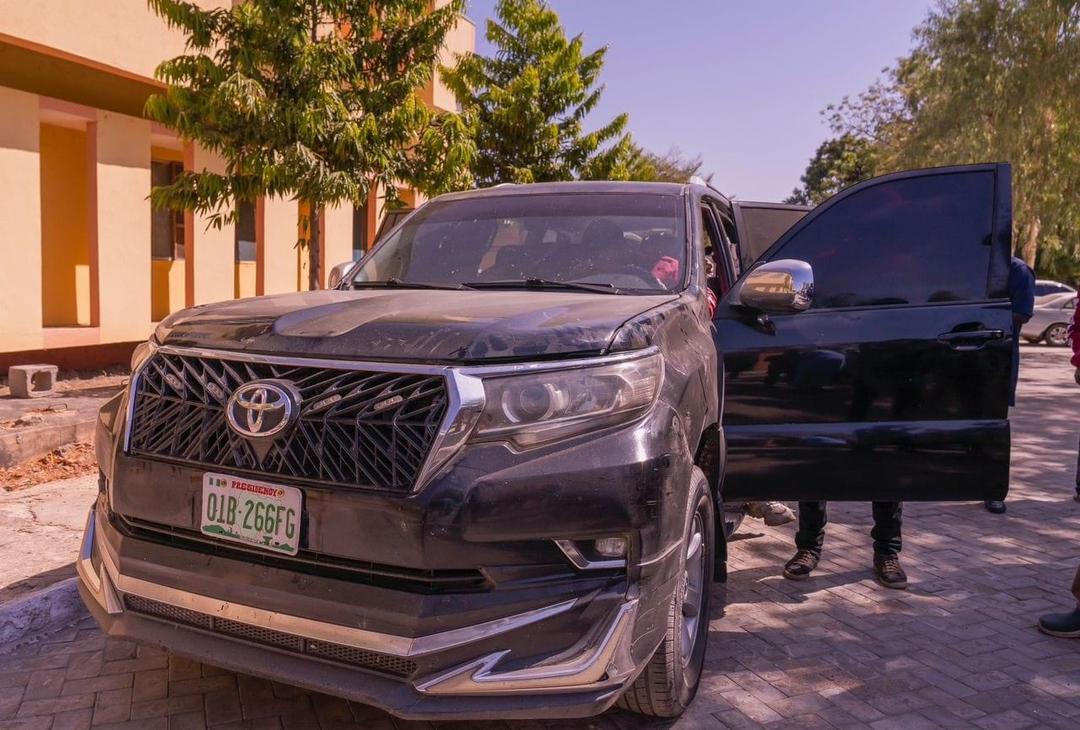Sylndr, the Cairo-based startup disrupting Egypt’s used car market, has raised $15.7 million in a fresh funding round led by Development Partners International’s Nclude Fund.
With this capital, the company seeks to double down on digitising one of the country’s most disorderly and opaque markets, vehicle ownership.
This round includes both new capital and earlier undisclosed seed investments. It also follows nearly $10 million in debt financing Sylndr secured from local banks over the past year.
That brings its total raised to more than $30 million since launch, a commendable figure for a company barely three years old. Sylndr had previously raised $12.6 million in what was then Africa’s largest pre-seed round.
The firm began in 2021 with a straightforward model: buy used cars directly from individuals, refurbish them, and resell with warranties and a money-back guarantee.
But with Egypt’s car market facing currency devaluation, import restrictions, and high demand for used vehicles, Sylndr saw a chance to do more, and fast.
“We were primarily focused on a consumer problem related to buying and selling cars,” said CEO and co-founder Omar El Defrawy. “And when we started to scale that business, it became very clear to us that the market is much bigger than that, and creating value to customers would require us to build other compelling businesses that integrate with what we’re doing.”
Egypt’s ban on used car imports and the collapse of the pound have changed the playing field. With more than 6 million vehicles on the road, most of them second-hand, local buyers are forced to pay prices that often reflect dollar values, not local affordability.
It’s a fractured market where informal sales dominate, inspections are rare, and buyers shoulder all the risk.
Sylndr has stepped into that gap, offering structured financing, verified inspections, and guaranteed ownership transfers. The company estimates Egypt’s used car market to be worth $10 billion. But it’s not just going after volume, it’s chasing a full digital overhaul.
One of Sylndr’s key innovations is Sylndr Swift, a product that connects buyers with financing partners, including banks and underwriters. It promises approvals in under ten minutes. Importantly, Sylndr doesn’t lend from its own balance sheet, but functions as a marketplace for credit.
Then there’s Sylndr Plus, a service division offering vehicle inspections and repairs, aimed at ensuring post-sale transparency. A third vertical, Al-Ajans, focuses on dealers, allowing them to list vehicles on Sylndr’s platform while the company handles inspections, ownership transfers, and payments.
All three verticals are embedded into one app, creating what Sylndr calls a complete mobility platform.
“I don’t think of Sylndr as a car dealership anymore,” said El Defrawy, who previously led finance operations at Elmenus. “We are building infrastructure for digital car ownership. That includes sales, financing, servicing, and enabling dealers to plug into a system that works.”
The shift is already changing how money flows. Sylndr says its sales have grown tenfold since 2022. Revenue in Egyptian pounds has increased 22 times. Even after adjusting for the weakened currency, it still grew five times in dollar terms.
Currently, the company claims a 50-50 split between direct-to-consumer and B2B transactions. Within two years, it expects the newer verticals, financing and servicing, to account for up to 60% of gross profit.
While regional competitors like OLX, Contactcars, and Nigeria’s Autochek (via AutoTager) also operate in this space, Sylndr insists its full-stack model is difficult to copy. “Our infrastructure of inspection, refurbishment, and bank partnerships isn’t something you build overnight,” El Defrawy stated.
“Sylndr is building the digital backbone of mobility in a market where access, trust, and financing have long been barriers to ownership. Their integrated model brings together commerce, credit, and technology to fundamentally improve how Egyptians buy and sell cars,” said Ashley Lewis, managing partner at DPI Venture Capital.
DPI’s investment in Sylndr is its third Egyptian deal in a month, after backing digital savings platform MoneyFellows and property tech startup Nawy. Other participating investors include Algebra Ventures, Nuwa Capital, Raed Ventures, Egyptian Gulf Holding, Uncovered Fund, Beltone Venture Capital, and Camel Ventures.
Unlike many Egyptian startups looking to expand quickly into Gulf markets, Sylndr plans to stay put. “We’re focused on Egypt. This is our home market, and we’re the largest used car trading company here by volume and value,” El Defrawy said.
The company currently works with more than 1,000 dealers nationwide, reaching customers both online and through offline channels. And from its recent moves, Sylndr is building a digital ecosystem for ownership, built on data, trust, and speed.
![]()
The post Sylndr Raises $15.7 Million to Reinvent Egypt’s Used Car Market appeared first on Tech | Business | Economy.

.png) 13 hours ago
2
13 hours ago
2






.png)






 English (US) ·
English (US) ·